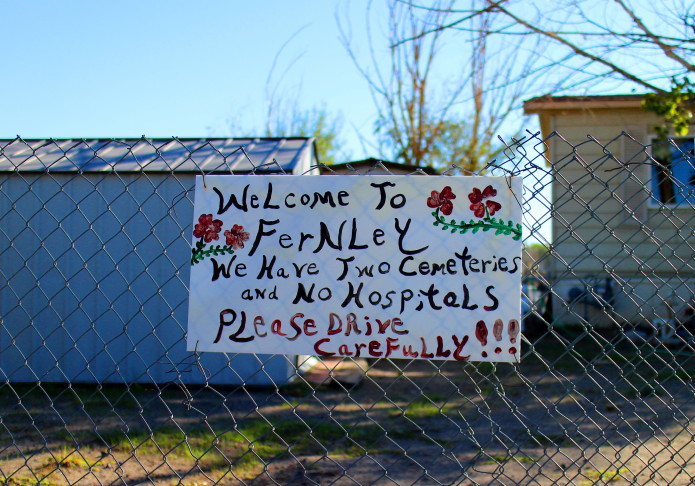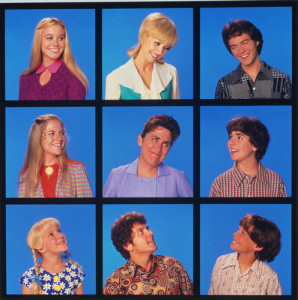An eerie blue light appears on the early morning horizon, and eight legs twitch with anticipation. The Water Spider is captivated by the glow and changes course. A woman with white hair has illuminated the beacon and she stands under it holding a dildo the size of 3 eggplants. She whacks the supple mass on a baker cart, and as the impact reverberates through its realistic flesh, she dispassionately wonders, “What do people even do with this thing?”
My job as Water Spider is to bring the woman with the white hair more black plastic to wrap her thousands of sex toys in, because she has exhausted her supply. There are others like her, selflessly black-wrapping fist-shaped butt plugs in order to protect the modest, heaving buckets of protein powder from a conveyor onto a cart, feverishly separating hundreds of similar shades of eyeshadows into perfect rows, all chasing arbitrary productivity goals set by the managers. The Water Spider speed-walks about a marathon by the end of the day while dodging Tokyo-drifting forklifts, keeping the area in order, and making sure everyone has what they need to do their job. The Fernley warehouse is one of the “legacy” (oldest) facilities, and is almost completely devoid of robots. Conveyors snake around much of the airspace, which gives the facility its warehouse feel, but almost all of the work is done by humans holding scanners.
It goes like this: Trucks arrive at the Inbound Dock full of product in boxes packed into hundreds of losing games of Tetris. A crew of people unload the truck by hand, scan the boxes, and sort them according to their necessary path to The Bins. Masturbatory items go to Prep, where lotions are put in plastic bags, etc. Product from Licensed vendors remains in boxes and is sent straight to the Stowers, who fill The Bins. Most of the product that comes on trucks is destined for the Rambo conveyor, which looks like a bandolier. Rambo receivers open boxes, scan and verify product and put it onto carts. Carts are sent to the Stowers who quickly take these items off of their carts and greedily squirrel them away into bins.
The Bins are the heart of the dystopian chaos that defines the Non-Sort FC (Fulfillment Center). Stowers push carts through the depths of the FC in search of suitable Bins to stuff their product into. There are rules, referred to as Bin Etiquette, to ensure the randomization (and easy access by Pickers) of product storage. First is the Brady Bunch rule. Bins are just shelves with dividers segmenting them, and if viewed through the lens of late 20th century daytime television, can resemble the intro of the Brady Bunch where they all makes faces at each other from their own squares in a grid. Similar items may not occupy more than one square in this size of a grid. This makes it easier for the Pickers, who must grab items customers have ordered while a timer on their scanner counts down their lives. The other rules have more boring explanations, but a similar purpose: Don’t build precarious towers out of blister packs that will explode at a Picker’s touch, Don’t precariously balance heavy items on the top shelf that they might fall into someone’s skull, etc.
Every year for TWO YEARS now, we have come to beautiful Fernley, NV to work at the Amazon Fulfillment Center as Camperforce Associates. It is a program Amazon runs in which they invite travelling RVers to some of their giant distribution warehouses to come help out before Christmas (Let’s not pretend other Holidays are part of this rush). We fill out a WOTC form and we are good to go! The Work Opportunity Tax Credit is the reason Amazon can take on such a slow, inefficient workforce, because since they are getting us off of government assistance for almost 3 months of the year, we are a tax deduction for them. They say there are other reasons, such as our perfect attendance, and the quality of our work, but they say a lot of things. Sometimes they say, “Work hard. Have fun. Make History.” Which is embarrassing, and makes everyone cringe.
The perk of being part of the Camperforce is that we are directly employed by Amazon, and are not held to the same unrealistic standards that the rest of the employees are. Most people in the warehouse actually work for Integrity, which is the temp agency that serves to keep Amazon’s labor cheap and disposable. If you have heard the Radiolab episode, Brown Box, she had a different job at a different facility, and a much more difficult time with the work because of the pressure from the temp agency. Our experience was not anywhere near as bad as what keeps being described in the media, and it is mostly due to this fact. Also, our facility had heat and A/C. In fact, when I found packing materials that resembled bedding for giants, I could go run around with it and offer giant naps to people without getting fired for being off-task. It was possible for me to work hard and have fun at times because I didn’t care about working myself to death.
Speaking of the media, the case regarding security wait times is a mystery I haven’t been able to figure out. The security checkpoint includes 3 metal detectors, which are on the wrong side of the time clocks, but people can walk through at a normal pace without stopping, one after another. If someone beeps, they are pulled aside and screened, which itself is not a lengthy process. Once, I forgot to take my phone out of my pocket before work and had to spend about 5 minutes of my break proving to the guards that it was my phone. This is irritating, but that was the worst it has ever been, and I worked in one of the oldest warehouses (read: most humans in building) during the Peak season. If anyone has ever actually had to wait 25 minutes to get through security without being paid for that time, that is unequivocally an infringement on their rights, but I can not figure out how that managed to happen.
From the middle of October until a couple days before Christmas we worked 55 hour weeks, and made about $6500 each, each year. This has been enough to get us through the rest of the year travelling and climbing, including everything except for expensive tragedies like transmission failure. Unfortunately, the Fernley FC is shutting down and moving to Reno to become a Sort Facility, and will not host a Camperforce program. Our Rampage is inherently unpredictable and we don’t count on any stable source of income since we are tromping around on an adventure instead of following some kind of career path. Making money on the road is an art which we have not mastered, yet.
People ask us questions like, “When will you have children?” and, “WHAT ABOUT RETIREMENT?” Those things kind of answer each other since we aren’t going to have children, and will therefore save approximately $241,080 that we will be able to use for retirement. Of course, to be saving money by not spending it on children, it helps to be making that money in the first place. It is exciting to be on our own again and be forced into finding a more fulfilling way to make money than pushing carts around and shoving iPad accessories into bins. At least, that is a nice way to think about it. We don’t have the Amazon crutch anymore, and since we don’t want to end up cleaning poop out of showers at campgrounds it’s time to get serious about getting rich! So, um, stay tuned.

